Herpes Relief: Breakthrough Home Remedies to Relieve Symptoms Naturally
Struggling to pinpoint herpes symptoms? Herpes, stemming from HSV-1 and HSV-2, manifests through various signs. This piece directly guides you in identifying key symptoms of both oral and genital herpes, ensuring you gain the targeted knowledge swiftly and clearly.
Key Takeaways
- Herpes is caused by two main types of the herpes simplex virus (HSV-1 and HSV-2) with symptoms that include sores or ulcers and systemic issues like fever and muscle aches; recognizing and managing outbreak triggers is crucial.
- Herpes outbreaks can be treated with antiviral medications to manage symptoms; the initial outbreak is typically more severe than recurrences, and lifestyle factors like stress can trigger subsequent outbreaks.
- Home remedies such as tea tree oil and dietary adjustments with lysine supplementation may help manage herpes symptoms, while immune system support through nutrition and lifestyle choices can help prevent outbreaks.
Understanding Herpes Symptoms
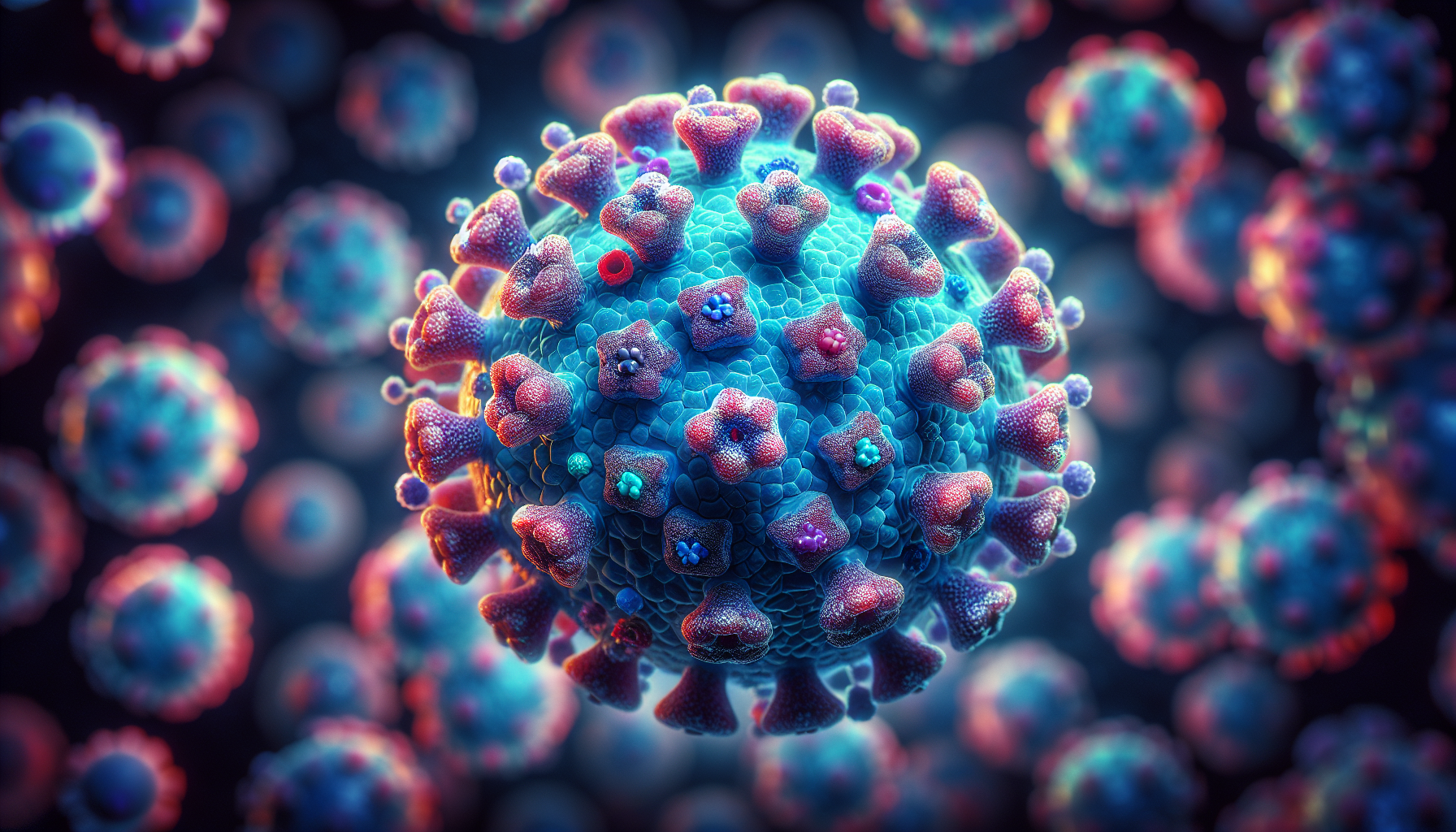
Herpes is caused by the herpes simplex virus (HSV), presenting in two distinct forms: herpes simplex virus type 1 (HSV-1) and herpes simplex virus type 2 (HSV-2). These viruses are the culprits behind oral and genital herpes, the most prevalent types of this infection. Recognizing the symptoms is essential in effectively managing and preventing the disease.
Typically, a herpes infection is characterized by the presence of small red bumps or white blisters, sores, or open ulcers. These can appear on various body parts, such as the mouth, face, genitals, anus, inner thighs, or buttocks. Cold sores, for instance, are a common manifestation of oral herpes.
Genital herpes, on the other hand, is primarily transmitted through sexual contact with an infected individual. It is attributed to a viral infection caused by the herpes simplex virus-2 (HSV-2).
Remember that the manifestation of herpes symptoms can vary significantly among individuals. Some infected individuals may never display visible sores, while others may have frequent and severe outbreaks. Unfortunately, there is no cure for herpes as of now, but antiviral medications can help manage symptoms and reduce the frequency of outbreaks.
Identifying Oral Herpes Symptoms
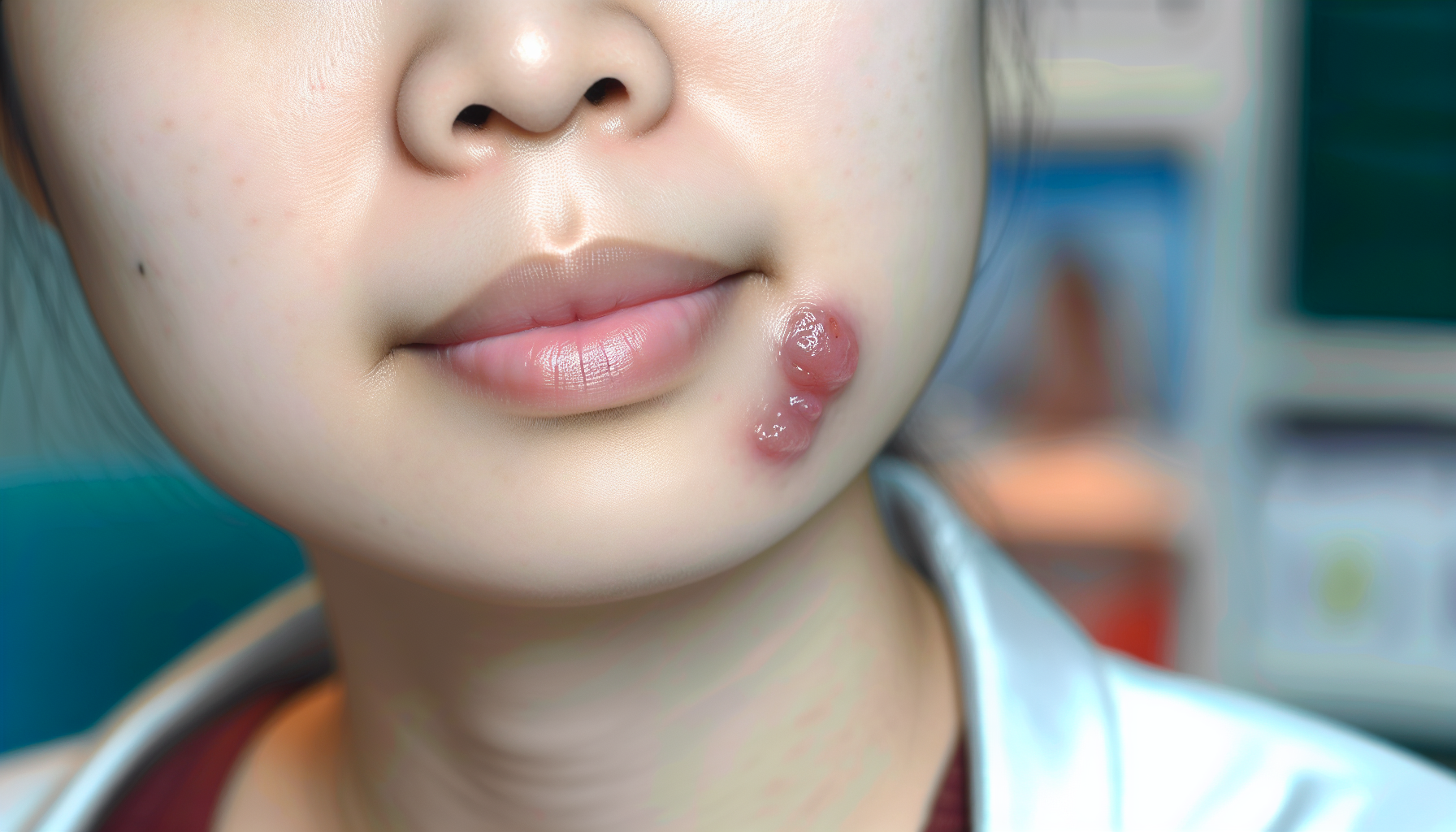
Oral herpes, attributed to the herpes simplex virus-1 (HSV-1), is a viral infection that can cause the following symptoms:
- Outbreaks of mouth ulcers and sores around the mouth or on the face
- Swollen glands
- Discomfort during swallowing
- Itching and burning sensation in the lips and/or mouth area
The average incubation period for the appearance of oral herpes symptoms following exposure is 4 days, with a range of 2 to 12 days. This implies that symptoms can appear anywhere from 2 to 12 days after exposure to the virus. Recurrent outbreaks can be triggered by factors such as stress, illness, and hormonal fluctuations.
Pinpointing the triggers of oral herpes outbreaks can be key in managing the condition. These triggers can encompass:
- Intimate contact with an infected individual
- Viral infections or fever
- Hormonal fluctuations
- Stress
- Illness
- Exposure to sunlight
- Menstruation
- Surgery
- Physical injury
- Emotional stress
Recognizing and managing these triggers can help treat herpes outbreaks and reduce the frequency of future herpes outbreaks.
Recognizing Genital Herpes Signs
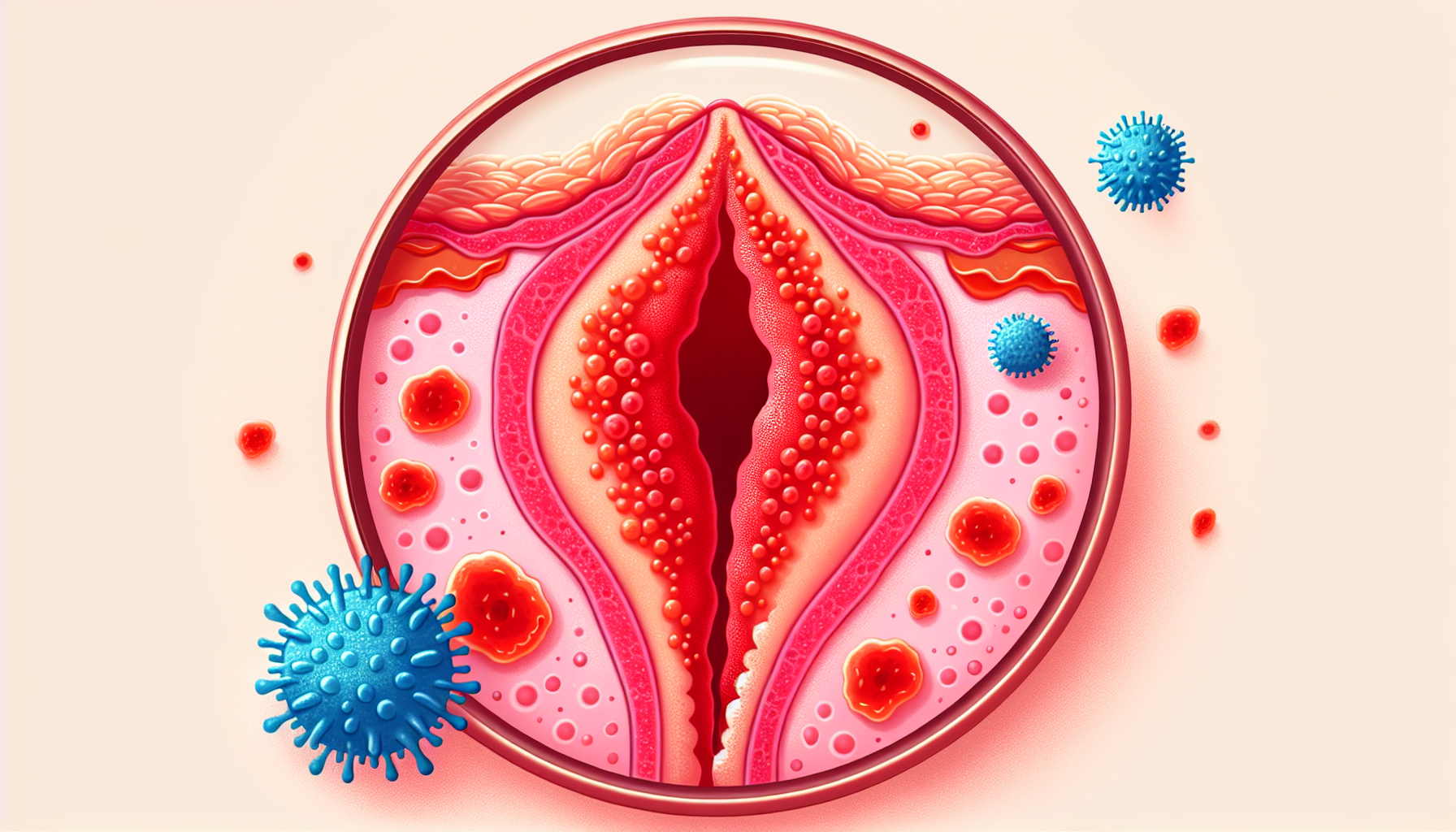
The initial sign of genital herpes infection is the appearance of a red, itchy spot in the genital area. This spot then develops into a blister within a few hours. These blisters or lesions subsequently enlarge to form small vesicles, containing either a clear or a pale yellow liquid.
While genital herpes primarily presents as painful blisters in the genital and anal areas, the condition can also cause blisters to appear on other body parts. These include:
- the tongue
- mouth area
- eyes
- fingers
Outbreaks occur due to various triggers, such as stress, illness, and hormonal fluctuations.
The typical duration of a genital herpes outbreak is approximately three to seven days, although the first outbreak may last up to two to four weeks. Acknowledging these signs and comprehending the timeline can considerably assist in managing the condition and seeking proper treatment.
Systemic Symptoms of Herpes Virus
Beyond the localized symptoms previously discussed, herpes can also induce systemic symptoms. These may accompany both oral and genital herpes outbreaks, including:
- headache
- fever
- muscle aches
- backache
- swollen lymph nodes
Identifying these systemic symptoms is imperative as they can signify an active herpes outbreak.
The swelling of lymph nodes, especially in the groin area and neck, is a natural response to the initial infection during a herpes outbreak. Indeed, fever and body aches can also be symptomatic of herpes, particularly during the initial outbreak of the virus.
The Initial Outbreak vs. Recurrent Episodes
You might be wondering how the initial herpes outbreak compares to subsequent recurrent episodes. It’s noteworthy to mention that the initial herpes outbreak is often more severe and lasts longer than recurrent episodes. With time, symptoms gradually decrease in intensity and duration.
Reactivation of the herpes virus and subsequent outbreaks can be triggered by factors such as stress or another illness. This means that managing stress and maintaining good health can potentially help in keeping the virus in check.
However, each person’s experience with herpes can be different. Some people might have frequent outbreaks, while others might have very few or none at all. Understanding these variations can help in managing the condition effectively and reducing the risk of transmission.
Warning Signs of the First Herpes Outbreak
Identifying the early signs of the first herpes outbreak is vital for promptly seeking medical attention. The initial herpes outbreak may present with flu-like symptoms, swollen lymph nodes, and more extensive sores or blisters.
Common flu-like symptoms that may be present during the first herpes outbreak include:
- Chills
- Headache
- General run-down feelings
- Achy, flu-like feelings
- Body aches
- Fever
- Headache
The average incubation period for an initial herpes infection is 4 days after exposure, but symptoms can appear anywhere from 2 to 12 days after exposure.
Symptoms During Recurrent Herpes Outbreaks
Unlike the initial outbreak, subsequent herpes outbreaks usually exhibit milder symptoms of shorter duration, with fewer sores. Blisters during recurrent herpes outbreaks tend to generally persist for approximately 3-7 days, and the overall duration of the outbreaks aligns with this timeframe.
Interestingly, it is common for herpes to reappear at the same spot or along the same nerve region as where the initial outbreak occurred. Recurrent herpes outbreaks can be initiated by factors such as:
- illness
- stress
- sunlight
- fatigue
Sunlight, in particular, may induce outbreaks of oral herpes. Although not definitively proven, genital herpes might also react similarly to these triggers.
Home Remedies to Soothe Herpes Symptoms
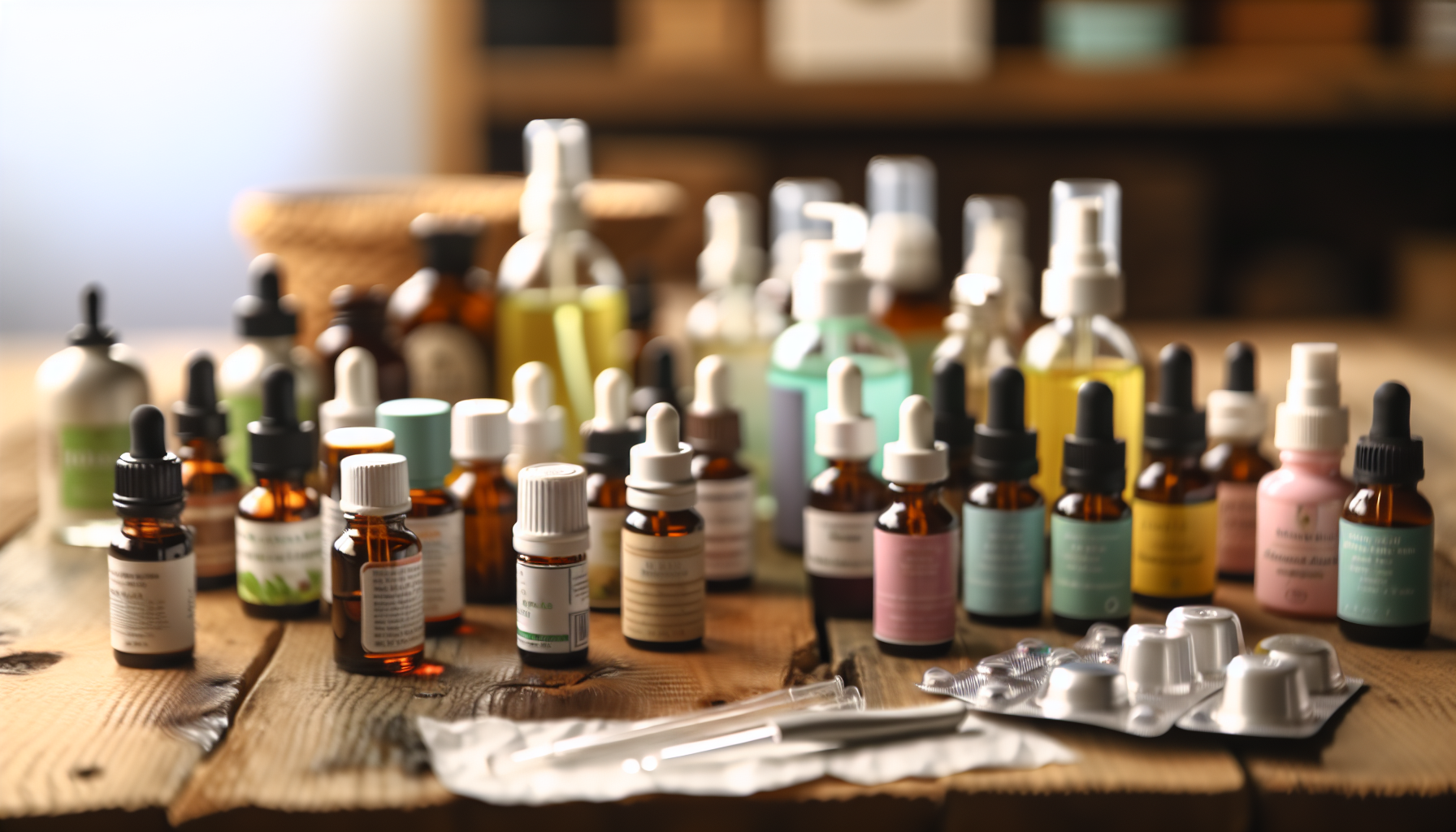
Now, let’s explore some home remedies that can provide comfort and relief during herpes outbreaks. Herbal and natural remedies can alleviate symptoms associated with herpes and these herbal remedies include:
- Tea tree oil
- Lemon balm
- Oregano oil
- Goldenseal
- Allicin from garlic
- Licorice root
- Aloe vera
These remedies possess a range of antiviral, anti-inflammatory, analgesic, and immune-boosting properties that may aid in symptom reduction preventive treatment, and relief.
Nonetheless, conducting a patch test before using essential oils and plant-based treatments is recommended to check for possible irritation or allergic reactions. Diluting essential oils with a carrier oil is recommended, and it is important to avoid using non-sterilized, non-prescription-grade ingredients, particularly in the vicinity of mucous membranes. If any irritation occurs, discontinuing essential oil use and seeking advice from a healthcare professional is advisable.
Vitamins D, E, and C can bolster immune function, while garlic capsules or tablets may provide antiviral benefits in managing herpes outbreaks. It’s crucial to consult a healthcare provider to establish the correct dosage and confirm the safety of these supplements.
Physical methods that can be used to alleviate symptoms of herpes include applying warm and cold compresses to the affected areas. Additionally, petroleum jelly can be utilized to reduce discomfort associated with urination during genital herpes outbreaks.
Herbal Allies: Tea Tree Oil and Lemon Balm
Tea tree oil is known for its antiviral properties, which aid in soothing and healing herpes sores. It can be applied directly to the sores using a cotton swab, providing instant relief from itching and discomfort.
Lemon balm is another herb that has shown promising results in managing and treating herpes’ symptoms and is considered one of the home remedies for herpes. Known for its antiviral properties, lemon balm can be applied directly to the sores to accelerate the healing process and reduce discomfort. It can be used in the form of a cream or ointment, or brewed as a tea for consumption. In addition to lemon balm, there are other remedies for herpes that can help manage symptoms and promote healing.
Dietary Adjustments: Lysine Supplements and Healthy Eating
Lysine, an essential amino acid, is one of the dietary supplements that have shown promising results in managing herpes symptoms. Lysine may help inhibit the amino acid arginine, which is linked to HSV replication. Although it doesn’t appear to impact active outbreaks, there is a potential for reduced frequency of future outbreaks with daily supplementation.
Before starting any supplement regimen, it’s crucial to consult with a healthcare provider who can provide guidance on the correct dosage and potential interactions with existing medications.
Some dietary sources of lysine are:
- Avocados
- Chicken
- Cottage cheese
- Pork
Including these foods in your diet can help ensure you meet your lysine needs. Incorporating these foods into a healthy diet can potentially aid in the management of herpes symptoms and decrease the frequency of outbreaks.
The Role of Warm and Cold Compresses
Warm and cold compresses can alleviate the itching and irritation often experienced during genital herpes outbreaks. In the event of a genital herpes outbreak, it is advisable to apply cool compresses to the sores multiple times daily to alleviate pain and itching. A cold compress, such as an ice pack or a clean, soft washcloth, can effectively reduce swelling.
On the other hand, a warm compress can be applied to provide relief from pain and discomfort. Utilizing a warm compress can effectively aid in managing the symptoms of a genital herpes outbreak by alleviating the pain and discomfort commonly associated with herpes blisters.
The Effects of topical Seaweed on herpes outbreaks
Emerging research indicates that topical seaweed like Hypnea musciformis has antiviral properties against HSV-1, potentially contributing to the relief of herpes outbreaks. Seaweed polysaccharides, such as dextran sulfate and heparin, have demonstrated the ability to inhibit the replication of HSV and other enveloped viruses. Furthermore, certain seaweed polysaccharides exhibit inhibitory activities by targeting the viral attachment stage.
Boosting Your Immune System Against Herpes
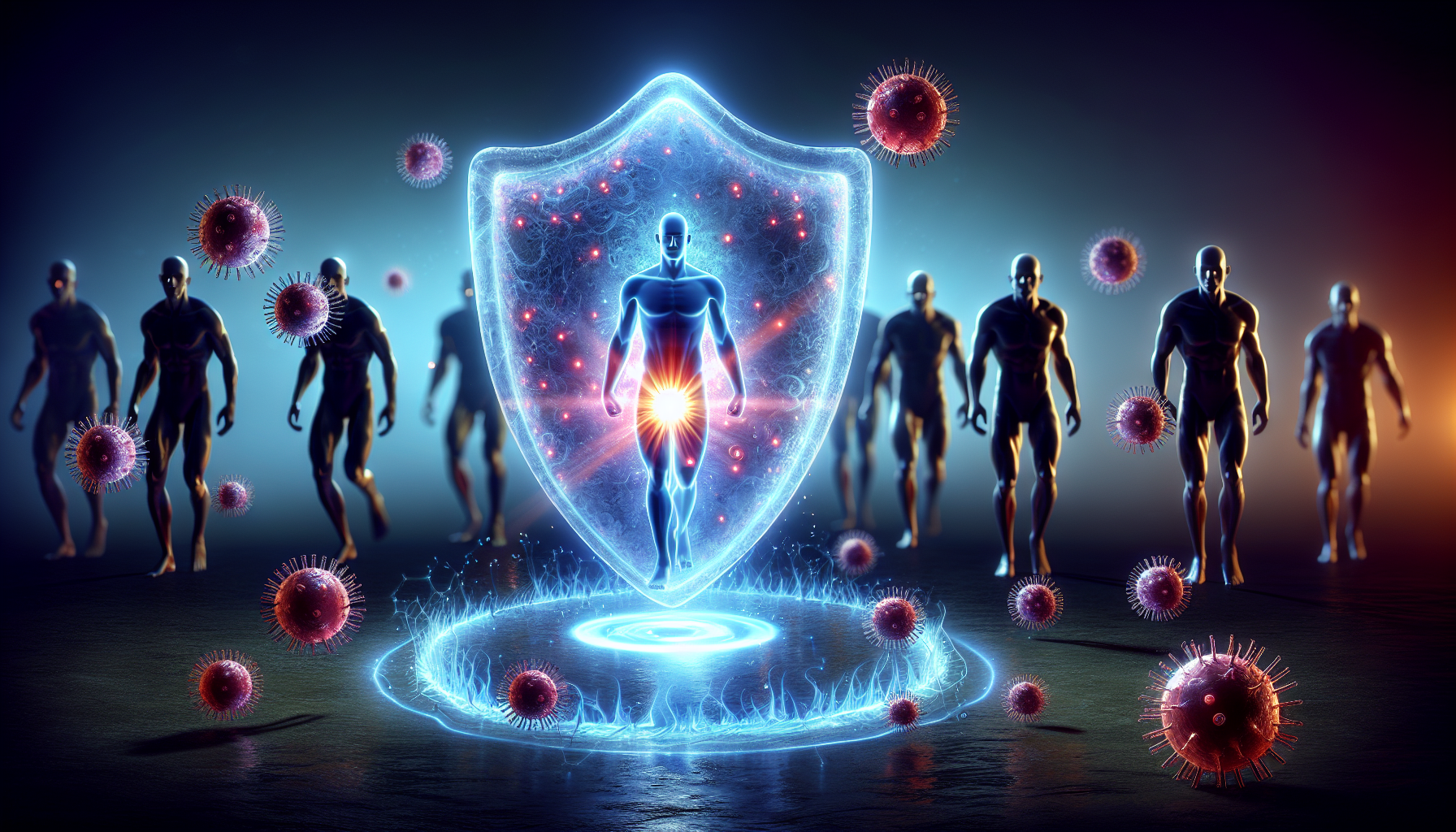
Boosting the immune system is a highly effective strategy in preventing herpes outbreaks and reducing transmission risk. A strong immune system can keep the virus in check, reducing the frequency and severity of outbreaks.
Vitamins D, E, and C have been found to be beneficial in managing herpes symptoms. Ongoing research indicates that their antiviral properties may contribute to reducing the recurrence of herpes simplex keratitis when used in conjunction with antiviral treatment.
Maintaining a healthy diet, taking appropriate dietary supplements, and keeping up with necessary vaccines can help keep herpes dormant.
Essential Nutrients: Vitamins and Minerals
Key nutrients that can aid the immune system and assist in combating herpes infections include vitamins such as Vitamin B12 and Vitamin D, as well as the essential amino acid L-lysine. These nutrients can be obtained through a balanced diet or dietary supplements.
Antioxidant-rich vegetables, certain dairy products, and non-acidic fruits, which are high in lysine, can help regulate the herpes virus and potentially reduce outbreak frequency by inhibiting its spread.
To promote optimal immune function, the suggested daily allowance comprises a balanced combination of vitamins A, C, D, E, along with selenium and zinc, which are essential for maintaining a strong immune system.
Healthy Lifestyle Choices
Adopting healthy lifestyle habits such as regular exercise and stress management can bolster the immune system and diminish the risk of herpes outbreaks. Some low-impact exercises that are suggested include:
- Walking
- Swimming
- Yoga
- Tai chi
These exercises have the potential to enhance immunity, alleviate stress, and enhance blood circulation without exerting excessive strain on the body during a herpes outbreak.
Adequate sleep also plays a significant role in enhancing the immune and nervous system both. Sufficient sleep plays a role in:
- Enhancing host defense mechanisms against infections
- Supporting inflammatory response
- Strengthening T cells, which are essential in combating infections like herpes.
Effective stress management strategies can also further reduce symptoms and the likelihood of herpes outbreaks. These include:
- Practicing mind-body medicine
- Yoga
- Meditation
- Acupuncture
- Relaxation techniques
- Deep breathing
- Ensuring proper zinc intake
- Getting plenty of sleep
- Eating healthy
- Journaling
- Engaging in regular exercise
Asymptomatic Shedding and Transmission
Comprehending asymptomatic shedding is essential in preventing herpes transmission. Asymptomatic shedding denotes the release of the virus from the body without any discernible symptoms. This phenomenon can occur in both oral and genital manifestations of the disease and serves as a prevalent means of virus transmission.
Asymptomatic shedding occurs on approximately 15.2% of days in individuals with primary HSV-1 infection, and about 10.2% of days in those with asymptomatic HSV-2 infections. This means that herpes can be transmitted even when an infected individual shows no visible lesions and may be unaware of their infection. Understanding this phenomenon is crucial in managing the condition and preventing its spread.
When to Seek Medical Advice
Seeking medical advice plays a pivotal role in managing herpes effectively. Consulting a healthcare professional for accurate diagnosis, suitable treatment, and effective symptom management is vital, especially during the initial outbreak or if symptoms worsen.
Medical professionals can diagnose both strains of HSV through a swab test or blood test conducted at a clinic. They can also guide you regarding the use of herbal treatments or oral supplements as a complementary approach to herpes treatment.
Preventive Strategies to Avoid Herpes Transmission
Practicing safe sex is a crucial step in mitigating the risk of herpes outbreaks and minimizing transmission likelihood. Using condoms or dental dams during sexual activity can significantly reduce the risk of transmitting herpes to your partner.
Additionally, being mindful of potential outbreak triggers such as colds and sun exposure, particularly for oral herpes, can help to prevent herpes outbreaks. Maintaining a healthy lifestyle is also crucial as it supports the immune system, thereby reducing the frequency of herpes outbreaks and lowering the risk of transmission.
Navigating Treatment Options
Exploring treatment options to treat herpes requires an understanding of the diverse therapies available such as antiviral prescription medications, complementary therapies, and lifestyle modifications. Prescription antiviral medications play a crucial role in the treatment of herpes by effectively managing symptoms and minimizing the severity and duration of outbreaks.
Frequently recommended antiviral medications for herpes treatment, which are examples of antiviral medication, include:
- Acyclovir
- Famciclovir
- Valacyclovir
- Penciclovir
Oral antivirals are commonly administered multiple times a day for several days during an active herpes outbreak, with the frequency and duration depending on the specific medication and the severity of the outbreak.
A comprehensive strategy for managing genital herpes encompasses:
- Primary treatment of antiviral medications
- Home remedies
- Natural treatments
- Lifestyle adjustments like supplementation and healthy eating.
Human Papillomavirus (HPV): HPV is a completely different virus.
Be aware that:
- The human papillomavirus (HPV) is a completely distinct virus from herpes.
- HPV is associated with wart-like lesions known as genital warts.
- Herpes is linked to blister-like lesions containing fluid.
HPV has a higher prevalence, with almost all sexually active individuals likely to contract it at some point in their lives.
Complementary Therapies
Complementary therapies can be integrated with conventional treatments for herpes to alleviate symptoms, decrease the frequency of outbreaks, and facilitate the comprehensive management of the condition.
Recommended complementary therapies for managing symptoms of herpes include:
- Echinacea extract, known for its antiviral and anti-inflammatory properties
- Stress-management techniques such as yoga, meditation, and acupuncture
- B12 and lysine as dietary supplements, as they contribute to symptom management and reduction of outbreaks.
The origin of the herpes simplex virus (HSV) in humans
The origin and evolutionary history of the herpes simplex virus in humans can be traced back thousands of years. Human infections with two distinct herpes simplex viruses, HSV-1 and HSV-2, are unique to the primate species. HSV-1 has been traced back approximately 50,000 years, indicating a lengthy evolutionary association with humans.
The herpes simplex virus has adapted over time, influenced by:
- Genetic variation between viral strains
- Genetic deficiencies or mutations
- Cross-species transmission
- Host genetic factors
- Environmental factors like stress and diet that affect the immune response.
The genetic evolution of HSV is a complex process that involved the infection of a common ancestor, followed by coevolution with each host species. This process ultimately led to the emergence of HSV-1 in humans. HSV-2, on the other hand, resulted from a more recent cross-species transmission event involving early hominids getting infected with ChHV, a different ancestral virus.
First human case of Herpes
The first case of herpes in humans reportedly occurred in ancient civilizations. Archaeological evidence of herpes in ancient civilizations includes the presence of herpes DNA in Egyptian mummies analyzed by researchers. This suggests that herpes has been affecting humans for thousands of years, with the first recorded case of herpes in humans believed to have occurred around five thousand years ago.
The virus has evolved over millions of years, infecting various species, and its evolutionary history in human populations can be studied using phylogenetic and molecular dating techniques.
Viral Mutation and Adaptation
The adaptability and mutability of herpes have enabled its survival and proliferation in human populations, making it a persistent and difficult-to-manage infection. The herpes simplex virus employs a variety of complex immune evasion strategies to survive in the human body. These include:
- Inducing autophagy in dendritic cells
- Establishing a latent infection in peripheral neurons
- Hijacking the cellular machinery to evade both innate signaling pathways and adaptive immune responses.
Specific examples of viral mutation in the herpes simplex virus include point mutations that can impact virus entry and spread. For instance, HSV-2 mutates faster than HSV-1, enabling the virus to effectively adapt, evade immune detection, and persist in human populations.
Frequently Asked Questions
What triggers herpes outbreak?
Herpes outbreaks can be triggered by factors such as hormonal changes, stress, illness, fatigue, surgery, and weakened immune system. These triggers can cause recurrent outbreaks of sores and blisters, especially in women during their menstrual cycle.
How long does herpes outbreak last?
Herpes outbreaks can last from two to three weeks, with the first outbreak typically being the most severe. Future flare-ups are often less severe and shorter in duration.
What are the first signs of getting herpes?
The first signs of getting herpes may include cold sores around the mouth or genital sores with tingling, itching, or burning sensation, flu-like symptoms, and painful urination. Remember to seek medical advice if you experience any of these symptoms.
What does herpes look like?
Genital herpes outbreaks typically appear as a cluster of itchy or painful blisters filled with fluid that may vary in size and location. These blisters eventually break, turning into sores that can bleed or ooze a whitish fluid.
What kills herpes virus in body?
Prescription antiviral medications like acyclovir, valacyclovir, and famciclovir can help manage the symptoms of herpes by shortening the length and severity of outbreaks, or preventing them altogether. While there is no cure for herpes, these medications can be effective in controlling the virus.
References


